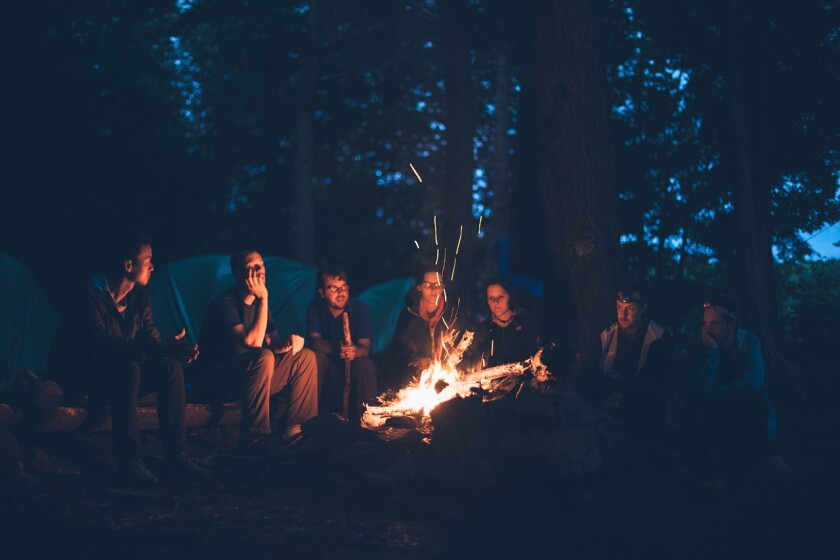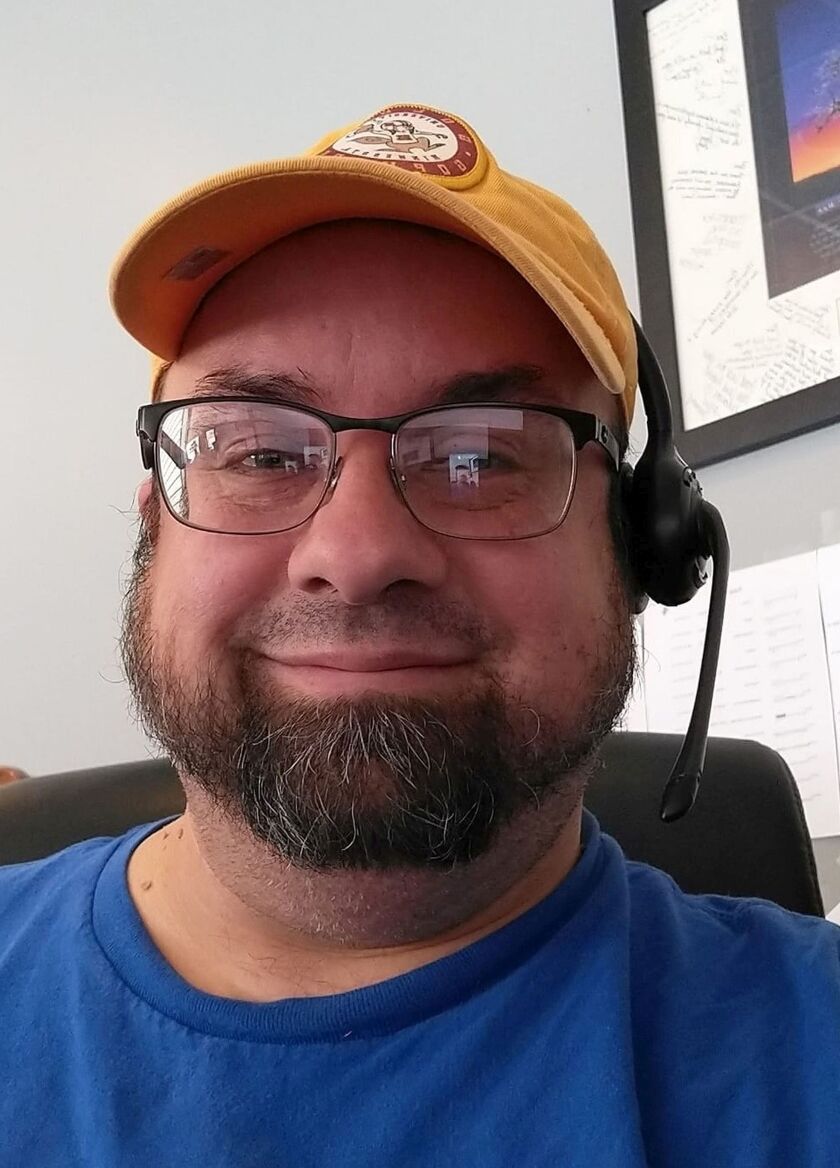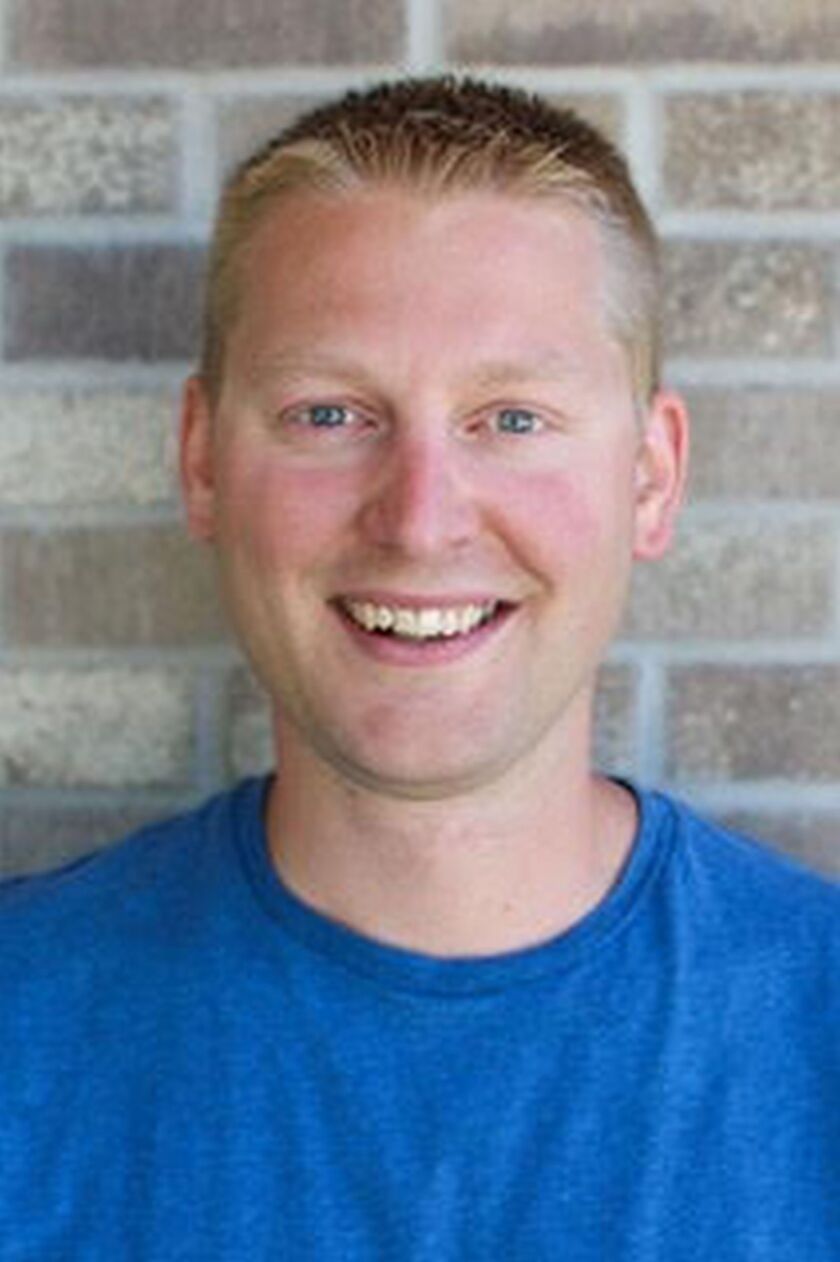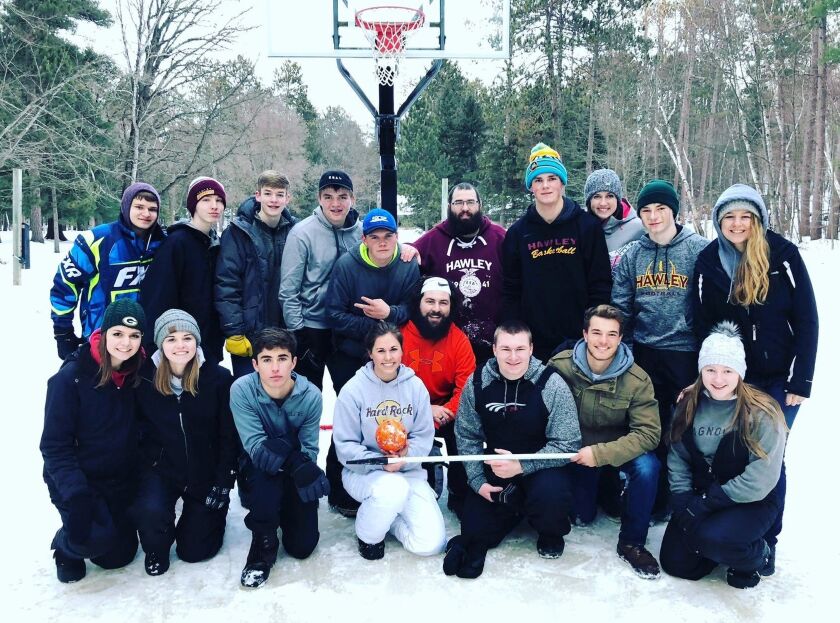
HAWLEY, Minn. – At age eight, Ben Tighe experienced leaving home for the first time for a few weeks in the summer to meet new people, learn about Jesus, and commune with nature—and he’s never looked back.
“It was magic for me; a great experience every summer,” says Tighe, member of Hawley Alliance Church, who, in his teen years, became a camp counselor, and now, in his adult years, remains an enthusiastic proponent of Bible camp as a transforming experience for youth.

Removing young people from the usual distractions of life, he says, gives them a unique chance “to focus on eternal things; it’s awesome.”
Now an elder in his church, Tighe has been among those persistent in ensuring every child who wants to go to summer Bible camp in their area can, no matter their circumstances, but with a focus on the “underserved.”
“We want to give them the experience they’d never have otherwise—to see a skunk, a bear, a raccoon, or something else you might not see except (dead) in the middle of the road,” he says.
As a parent of four sons, Tighe also knows how expensive camp can be. “When our second oldest went to camp, we had to make payments for a year. We finally got it paid off 11 months after he got home,” he says, “but I believed in it, and frankly, it was worth the embarrassment of being in that position.”
He and others at Hawley Alliance want to continue offering others that opportunity, without the worry of camp fees and forms holding them back, and they’ve got the backing of their pastor, Rev. Kyle Christopherson.
“This is a longstanding tradition in our church, recognizing the fact that kids make decisions about who they are spiritually at camp,” Christopherson says. “When they get away from parents, school, peer pressure, all those things, and intentionally go to another setting to hear from God, he speaks, and they can actually hear him, in a unique way.”
And so, without any questioning, the church comes through with personal donations, saying, “If you want to go to camp, you will go,” with the specific destination being Big Sandy Camp in McGregor, Minnesota, a non-denominational effort connected to a larger missions movement.
“Another tradition of our church is that our youth pastor commits to serving at the camp when our junior and senior hires are there,” Christopherson says, “so that’s been cool for them to see that leader in a different light, and have those experiences that bond them together.”
Such as “playing crazy games and jumping into the lake,” and other things where “they don’t have to put on a show,” he says, noting that the conversations that come forth from these moments tend to penetrate more deeply than what can happen at a one-hour Wednesday-night youth gathering at church.

“What is it about camp? I think it’s a general human principle that relationships all happen through common experiences,” Christopherson says. “So, to have all of them in one place, with one purpose for being there—to have a ton of fun and hear from God—that unifying experience creates a camaraderie that doesn’t happen as easily elsewhere.”
It’s an out-of-ordinary experience that lends itself to relationships in a new way. “You’re eating meals together, or in a cabin forming a team for a game, trying to knock each other over. You’re forming bonds and teams with people you might not even talk to in school necessarily,” he says. “And all of a sudden, you’re living together, smelling each other’s junior-high body odor, and it’s getting real!”
Although it differs each year, this summer, the church has sent around 30 campers to Big Sandy.
Troy Mapes, former youth pastor for the church, says that along with spending many years at Bible camp himself as a child, he also has been committed to encouraging kids to attend summer and also winter camp, both during his decade of service and since.
“It was a great place for students to just take a break from life, home, school, and sports, and just go, ‘Man, I just want to hear from the Lord.’” Mapes says. “Add he’s faithful every time.”

Even those who aren’t necessarily seeking a spiritual experience receive great benefit from camp. “They might say, ‘I’m not sure yet,’ but they end up going, and then they want more of it,” he says. “Some of them even realize they didn’t even miss their phone.”
The goal is to encourage kids from all walks of life. “You want as big a variety as possible,” Mapes says, noting that bringing many youth together “breaks down social structures” that can typically be limiting—to spiritual growth in particular.
“You align under a common group. You’re in cabins together, doing life with people you might not typically hang out with,” he says. And often, that doesn’t end when camp ends. “Now at school, you’ve got the popular kid at least saying ‘Hi’ to someone who isn’t as popular.”
The church aims to make getting to camp as hassle-free as possible. “We don’t even have to tell people, ‘Hey, we have a scholarship form,’” Mapes says. “We just say, ‘Camp is covered. All you have to do is fill out the (registration) form.”
Ultimately, it comes down to making an impact on young lives, he adds, by letting campers know that “Jesus isn’t just some guy. He really is the savior of the world!”
The effect often goes much deeper than the surface, says Mapes, who has experienced kids coming to understand they’re not to blame for their parents’ arguing and other home stresses, and others who’ve divulged their tendency to self-harm—and gotten help. “You walk through that with them, and let them know, ‘Your life matters.’”
There’s no greater joy, he says, than in hearing a young person who came to camp out of curiosity leave with a determination to live their life for Jesus. “You can’t replace that, and you can’t manufacture it.”
Mapes recently heard from an old camp friend who, shortly after college, got caught up in drugs, but since has been freed from addiction. “He called me last week and said, ‘Thank you for being a friend. You never gave up on me. You always encouraged me and prayed for me,’” Mapes recounts. “You never know the impact you’re going to have.”
He continues, “I tell people, ‘There’s nothing that’s unredeemable, except dying and not believing. You can never fall too far from grace, and you can never mess up too much,” Mapes says. “The whole point of the cross is that we get back up, and walk in the freedom of the cross, so we can be light to other people.”
And while the camp experience can’t heal every ill, he admits, it’s a start. “It’s like Jesus says: ‘We’re sowing seeds.’”
[For the sake of having a repository for my newspaper columns and articles, I reprint them here, with permission, a week after their run date. The preceding ran in The Forum newspaper on July 28, 2023.]

Leave a Reply